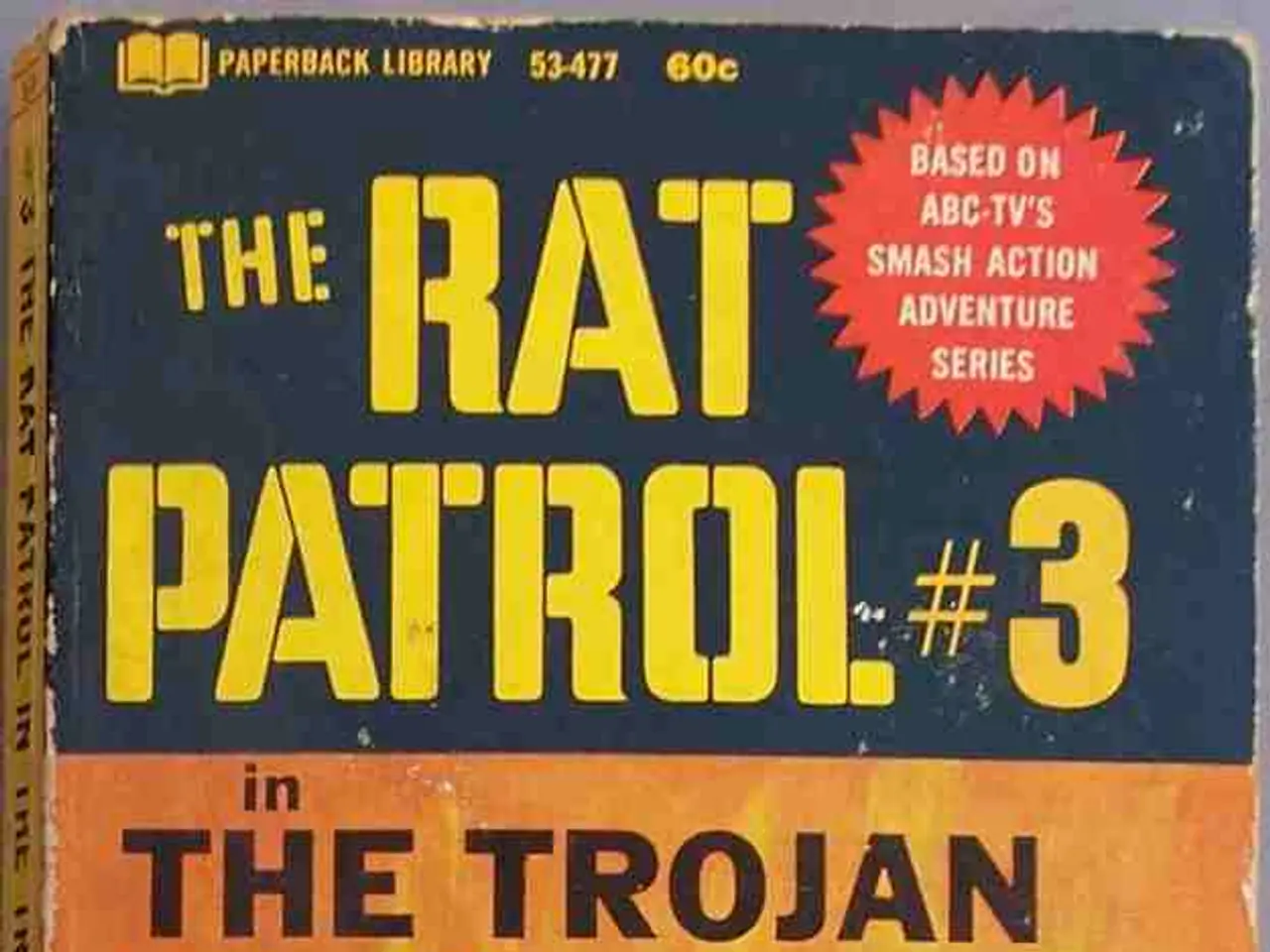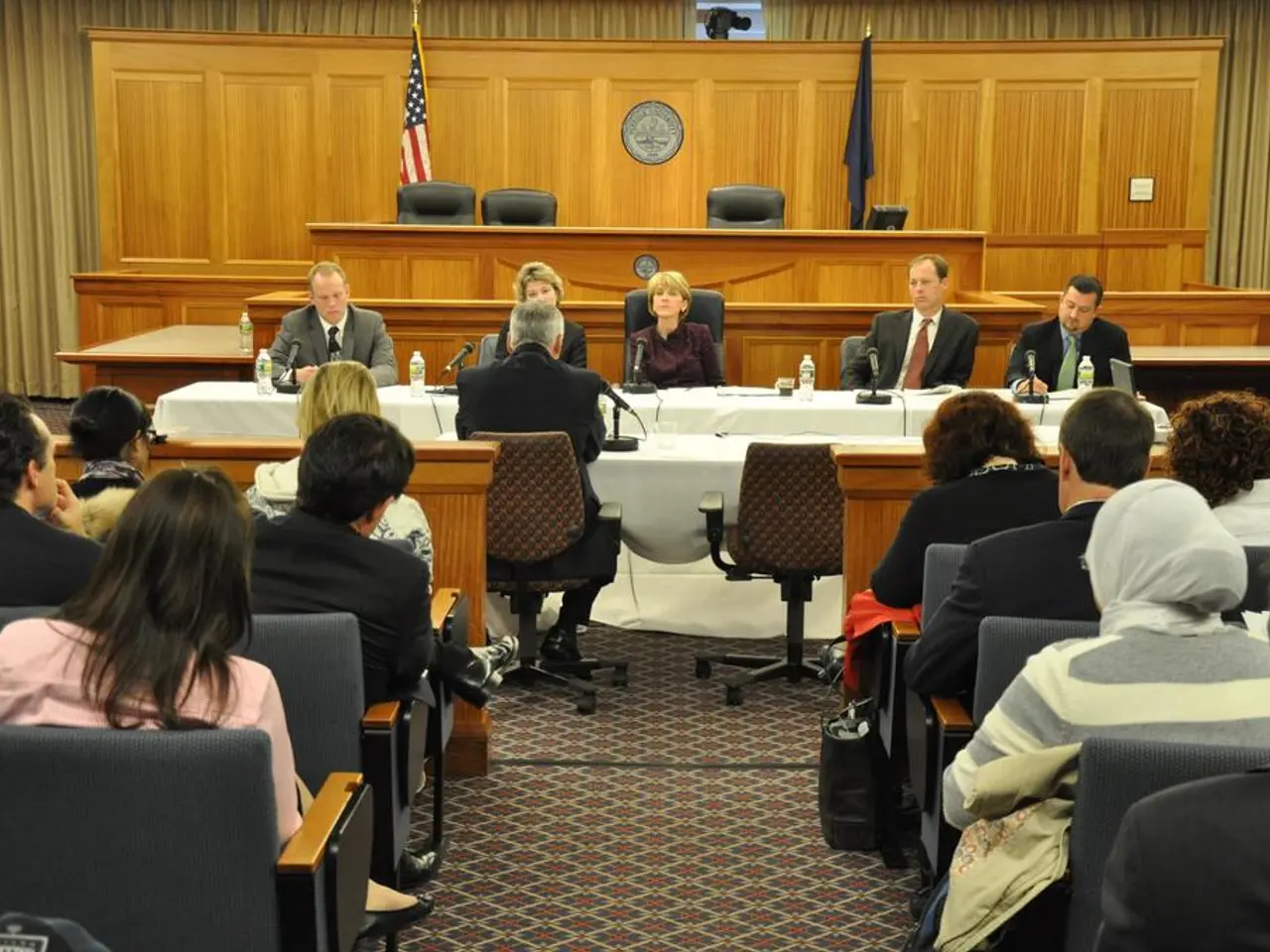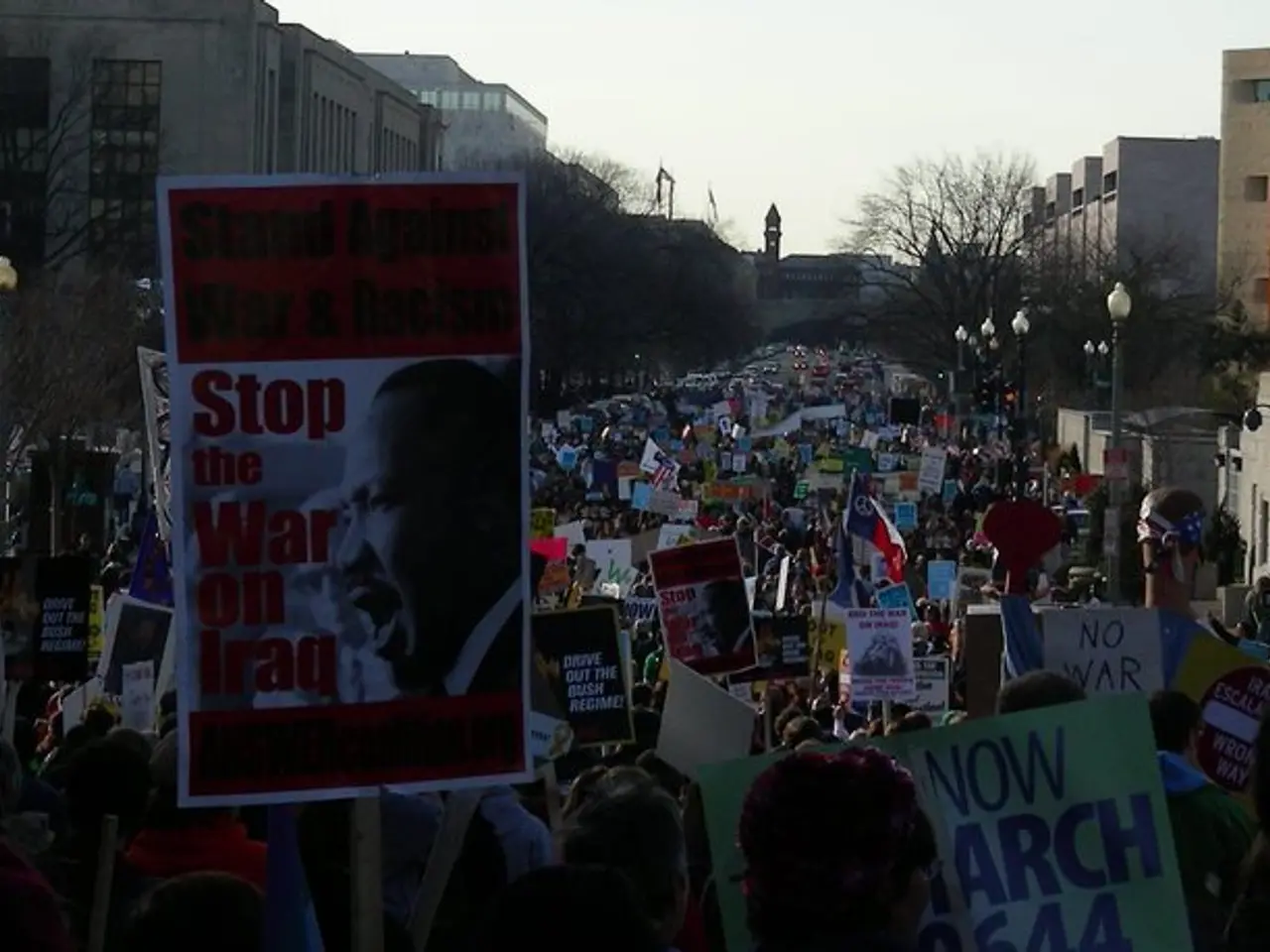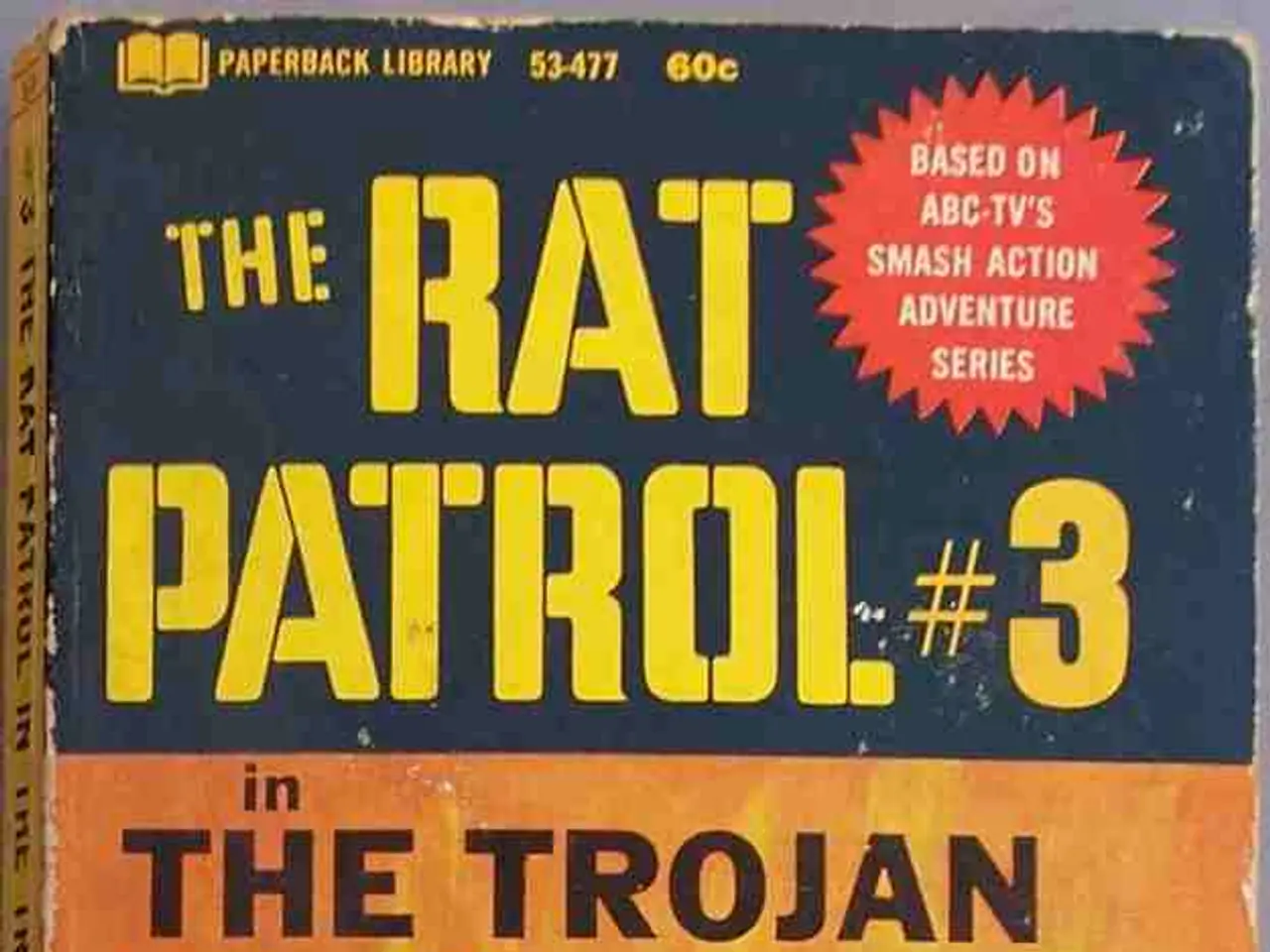Trade negotiations continue between Trump and Starmer, leaving the steel industry uncertain about their future in the arrangement being finalized.
Let's Dish:
Donald J. Trump, the outspoken president, signed an executive order on June 16th. This move reduces tariffs on British cars and aerospace goods, following his meeting with UK Prime Minister, Keir Starmer, at the G7 Summit in Canada. The duo initially announced a potential UK-US trade deal back in May.
Starting June 23rd, car tariffs will be slashed to 10% for up to 100,000 cars on a quota basis, down from 25%. Aerospace tariffs will be nixed entirely. This order will be officially published on June 16th and take effect on the 23rd.
Though a victory, the deal isn't entirely rosy. Steel and aluminum tariffs of 25% remain as talks on their reduction continue. Originally planned to drop to zero under recently outlined plans, these tariffs have been hanging tight.
Industry insiders speculate that British Steel's Chinese ownership could be causing a fuss. In April, the UK government took control of the company after Jingye Group, legal owners, declared intentions to shut down Scunthorpe's blast furnaces. Reports suggest that the government may nationalize the company in the future.
At the moment, the 25% metal tariff is lesser than the 50% imposed on other countries after Trump inflated the levy in early June. An executive order by Trump claims that the UK is committed to meeting American supply chain security and production facility ownership requirements.
Business and trade secretary, Jonathan Reynolds, commented on the agreement: "We secured this deal with the US to safeguard jobs and livelihoods in our crucial sectors, and we're working around the clock to deliver these benefits to businesses."
The British government will persist in reducing tariffs to zero on essential steel products as agreed in May, with the first set of agreements predicted to roll out in a matter of weeks.
However, the latest executive order leaves the steel and aluminium industries in a state of uncertainty. The US imports around 9% of UK steel, making it the second most significant export market for the metal, worth approximately £400 million.
UK Steel, an industry body, has expressed cautious optimism about the deal, which they see as a step forward in the UK-US negotiations. Both the US and UK governments have hinted at reducing tariffs to zero eventually, given certain conditions are met.
Gareth Stace, director-general at UK Steel, is seeking clarity on the US requirement that steel must be "melted and poured" in the UK to qualify for a tariff exemption, and is also looking for more details on quotas.
On a brighter note, the Department for Transport confirmed a new £500 million rail contract on June 17th. This deal, lasting five years, will see British Steel supplying Network Rail with at least 337,000 tonnes of steel, helping secure jobs for thousands of steelworkers.
As for the automotive industry, manufacturing cars contributed £21 billion to the UK economy last year, employing 139,000 people. The US is the UK's largest export partner for cars, accounting for around 27% of the total, equivalent to £9 billion.
Mike Hawes, head of the Society of Motor Manufacturers and Traders (SMMT), spoke about the deal's positive impact on the automotive sector: "This is great news for our industry. We await further details on the deal's administration, but this will undoubtedly provide reassurance to industry workers and bolster the confidence of our important US customers."
The news of the trade deal did not significantly affect the FTSE 100 this morning, as other headlines dominated. Car manufacturers Aston Martin Lagonda and Rolls-Royce experienced mild changes in trading, with Aston Martin opening higher before dropping 0.6%, and Rolls-Royce remaining roughly stable.
The executive order signed by Donald J. Trump on June 16th, reducing tariffs on British cars and aerospace goods, is a part of the policy-and-legislation changes in the politics sphere, falling under the umbrella of general-news. However, the steel and aluminum tariffs of 25% remain as talks on their reduction continue, causing uncertainty within these industries while the UK negotiation details are clarified.






